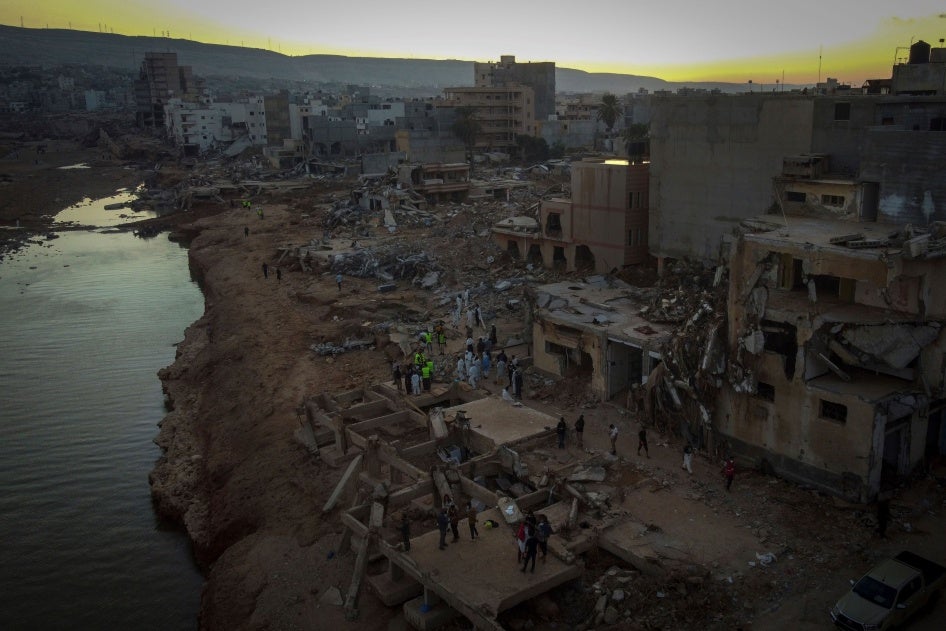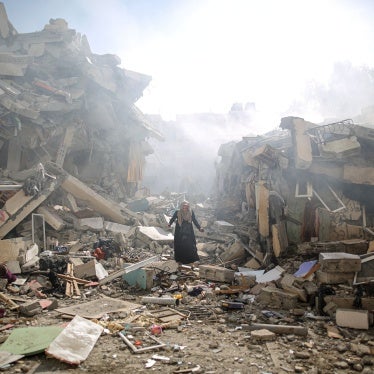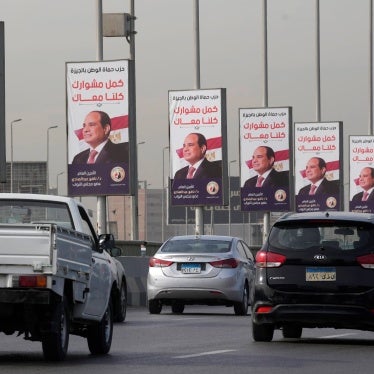(Beirut) – Another turbulent year for human rights in Libya passed as the two rival authorities in the eastern and western parts of the country cracked down on nongovernmental groups, and armed groups and militias continued to commit abuses against Libyans and migrants with impunity, Human Rights Watch said today in its World Report 2024.
“Libyan authorities should ensure a strong, free, and vibrant civil society that can work without unreasonable restrictions and the fear of harassment and attack, yet we are seeing the opposite happen,” said Hanan Salah, associate Middle East and North Africa director at Human Rights Watch. “The authorities should amend their procedures and laws to allow Libyans to enjoy their freedom of association.”
In the 740-page World Report 2024, its 34th edition, Human Rights Watch reviews human rights practices in more than 100 countries. In her introductory essay, Executive Director Tirana Hassan says that 2023 was a consequential year not only for human rights suppression and wartime atrocities but also for selective government outrage and transactional diplomacy that carried profound costs for the rights of those not in on the deal. But she says there were also signs of hope, showing the possibility of a different path, and calls on governments to consistently uphold their human rights obligations.
A strong storm hit Libya’s eastern coast in September, causing floods that washed away whole neighborhoods after several dams near the city of Derna broke. An estimated 4,300 people were killed, 8,000 were reported missing, and at least 43,000 displaced, according to the United Nations. Libyan groups have called for an independent international investigation into the country’s disaster management and the state of degraded infrastructure.
The Tripoli-based Government of National Unity, in March, outlawed nongovernmental civic groups that failed to comply with overly burdensome registration, administration, and operations regulations, infringing on the right to association and effectively freezing civic work. The rival, eastern-based authorities in February started to enforce an Anti-Cybercrime Law that United Nations experts had called contradictory to the rights of free expression, privacy, and association.
Migrants and asylum seekers suffer inhumane conditions, torture, forced labor, and sexual assault in arbitrary and indefinite detention controlled by both eastern and western Interior Ministries or in facilities controlled by smugglers and traffickers.
The Justice Ministry held thousands of people in prolonged detention without trial, in prisons run only nominally by the authorities but effectively controlled by militias, who subjected detainees to inhumane conditions including severe overcrowding, ill-treatment, and torture.
The UN independent fact-finding mission on Libya, whose mandated ended in March, found “reasonable grounds to believe that crimes against humanity were committed against Libyans and migrants throughout Libya in the context of deprivation of liberty.”
The chief prosecutor of the International Criminal Court (ICC), which has a mandate to investigate violations in Libya since 2011, announced in May that ICC judges had issued four new arrest warrants against individuals in Libya that remained under seal. Saif al-Islam Gaddafi, a presidential hopeful, remained a fugitive.









